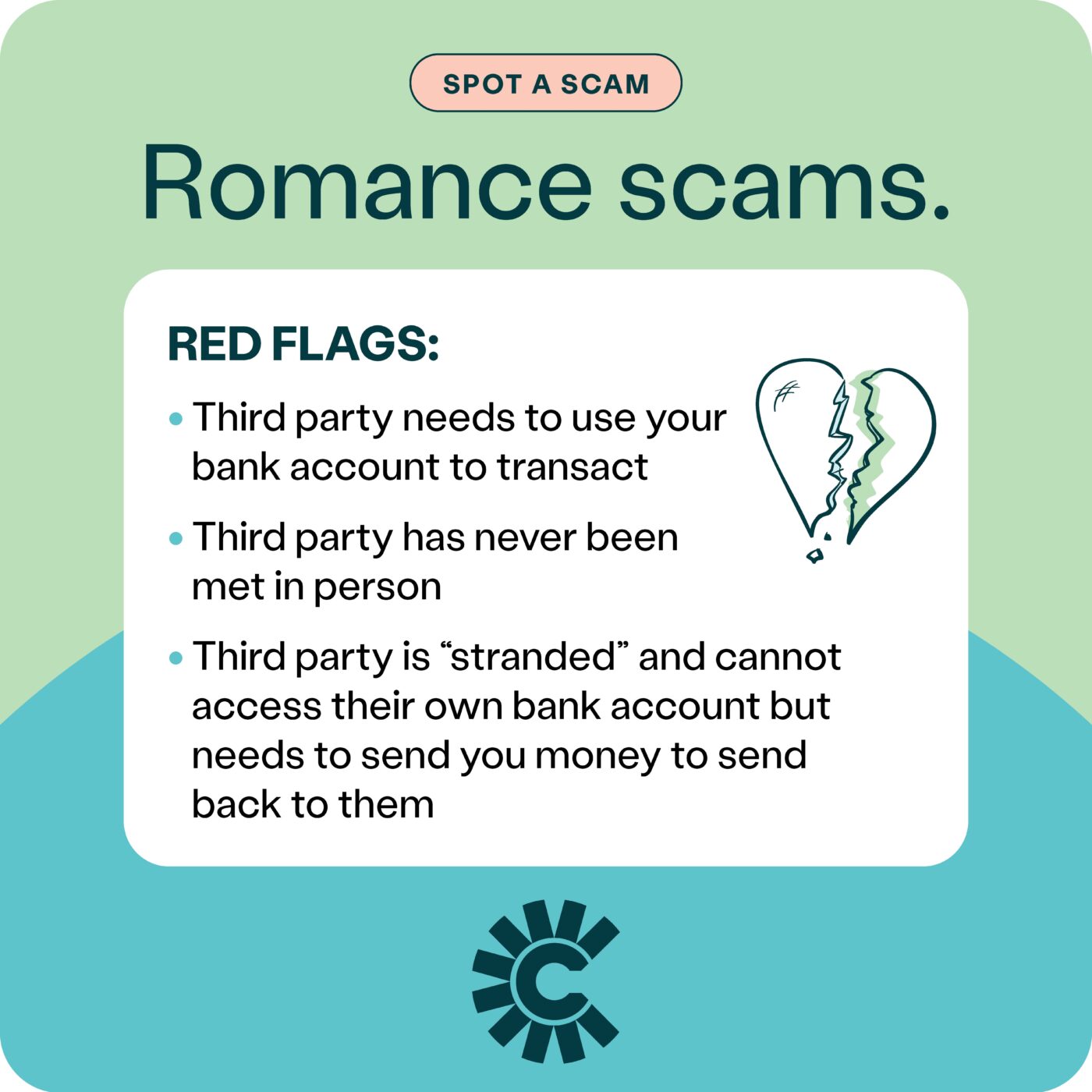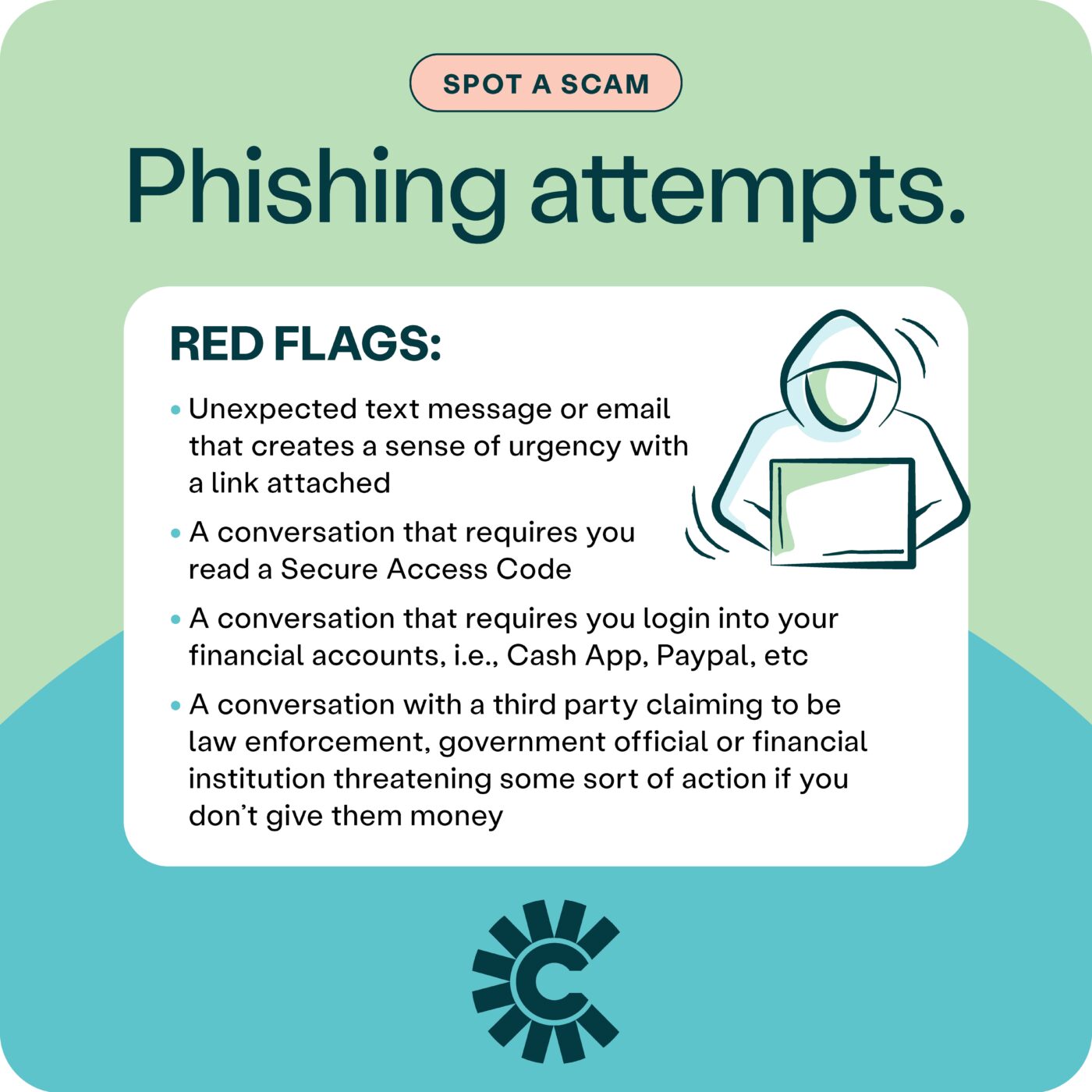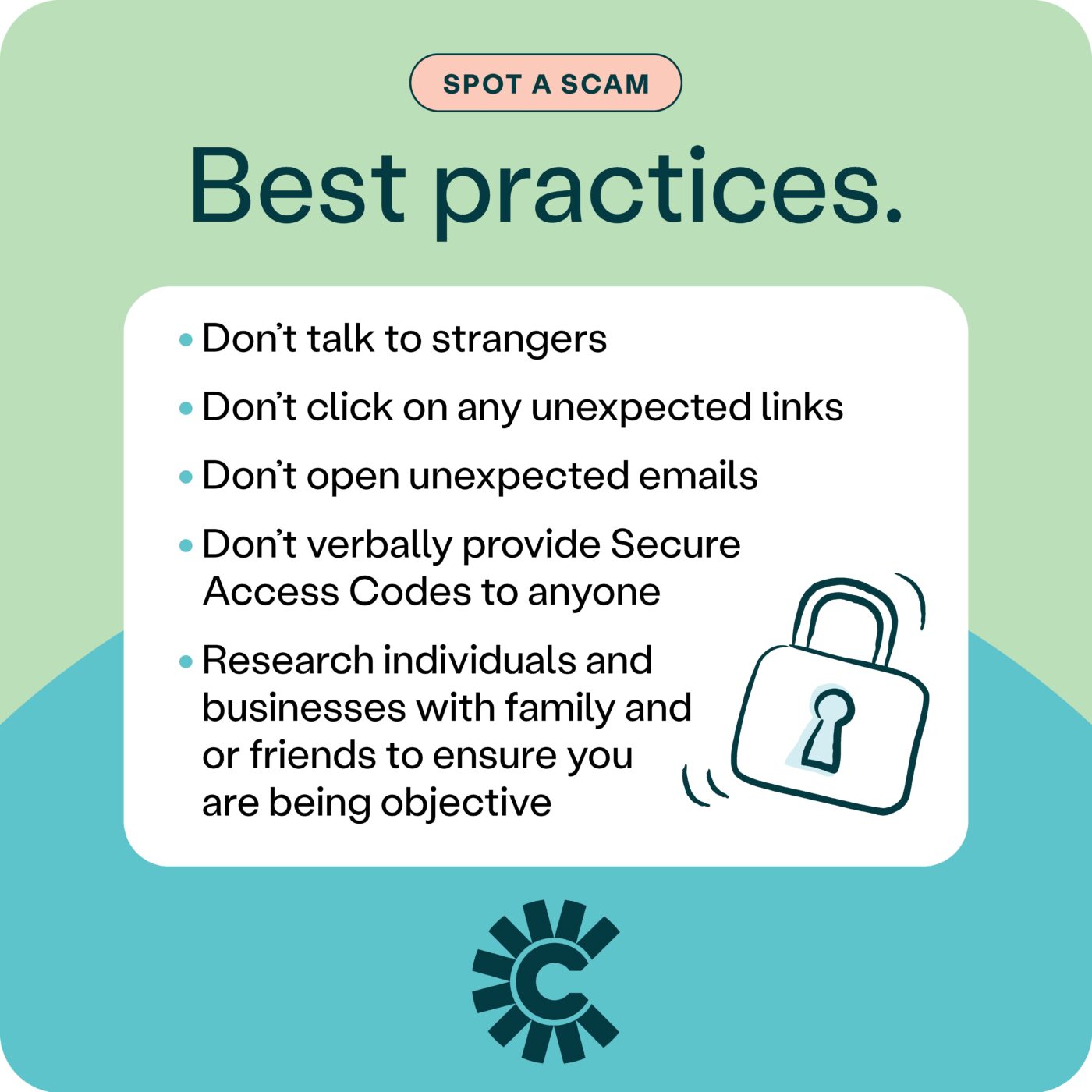Protect Yourself and Your Money
The internet offers countless ways to connect, but it’s also a space where scammers with harmful intentions target unsuspecting individuals.
These fraudsters often disguise their schemes to seem legitimate, preying on trust and urgency. By staying cautious, verifying sources, and protecting personal information, we can outsmart scammers and stay safe online.

Check usage is down but check fraud remains
While check usage is lower than ever, check fraud scams are not. Receiving an unexpected check, an accidental overpayment, or an offer that promises quick and easy money might seem like good fortune. But, if you’re not careful you could end up scammed out of your own money.

Check twice for safety
- Unusual amounts: The check shouldn’t exceed the amount you’re expecting. Ensure the figure is precise, especially with online sales or similar transactions.
- Mismatched details: Verify that the name and address on the check match what you know about the sender. For businesses, confirm legitimacy via the Better Business Bureau or online research.
- Missing features or red flags: Fake checks may lack a signature, bank address, logo, or security features like watermarks. They might also have typos, discoloration, or feel like low-quality paper.
If you haven’t deposited the check, hold off and contact us to discuss your concerns. If you’ve already cashed it, avoid spending the money until the check clears completely.
Make the right connections
Making friends online has become a normal part of life. From social media to gaming communities, the digital world offers endless ways to meet people. While most interactions are genuine, it’s still important to stay cautious. Protect your personal information, watch for red flags, and take your time building trust.
Protect Your Heart – and Your Wallet
You meet someone special on a dating app or on social media. Immediately, they urge you to move the conversation off the platform – after all, it is true love. But there’s a catch—they’re far away, maybe for work or the military. Soon, they ask for money: a plane ticket to visit, emergency surgery, or some other urgent need.
This is the playbook of a romance scammer. They create fake profiles, gain your trust with frequent chats, and spin believable stories to manipulate you into sending money. Stay cautious and protect your heart — and your wallet.

Keep your info off the hook
Scammers are constantly trying to reel you in with tempting offers or urgent requests for personal information. Stay alert by protecting your online details — never share sensitive information with strangers or respond to suspicious messages.

Don’t Take the Bait
Protect yourself by keeping your details private and never responding to unexpected requests for sensitive data. Verify the source of any communication before taking action, and stay cautious with emails, calls, or messages that seem urgent or suspicious.
Check the sender
Unsure of who is really on the line? Don’t rely on caller ID (that can be spoofed, too), and go straight to the source to check the phone number.
Beware of urgency
Think before you click (or call). If someone is asking you to act fast and send them information right away or click on something now – don’t.
Ways to keep your data safe and secure
Avoid clicking on suspicious or unexpected links and trust your gut – if something feels off, it’s likely off. By staying cautious and verifying the legitimacy of requests, you can protect yourself from scams and keep your information secure.
Simple tips to protect yourself
The internet is an incredible tool, offering endless information, resources, and opportunities to connect.
There’s no need to fear using it, but it’s wise to take simple steps to stay safe, like protecting personal information and being cautious with unfamiliar links or requests. With a little care, you can safely and securely enjoy all the internet has to offer.
